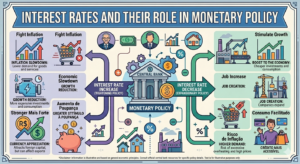In today’s competitive business landscape, leveraging financial resources effectively can mean the difference between stagnation and significant growth. One of the most potent tools available to businesses is business credit. When utilized correctly, business credit can provide the capital necessary for expansion, inventory purchases, hiring, and even marketing initiatives. However, like any financial tool, it must be used wisely to avoid falling into debt traps or mismanagement. In this article, we will explore how to use business credit intelligently to drive growth, while also avoiding common pitfalls.
What is Business Credit?
Before diving into how to use business credit wisely, let’s clarify what it is. Business credit refers to the creditworthiness of a company, which is separate from the personal credit score of its owner. Just like personal credit, business credit scores assess the ability of a business to repay debts and manage financial obligations. This score is based on factors such as the company’s payment history, the amount of credit used, and the number of creditors.
Securing business credit opens the door to borrowing money or accessing revolving lines of credit to fund operations without using personal funds or assets. This can be a significant advantage, especially for small businesses looking to grow.
Build a Solid Credit Foundation
The first step to utilizing business credit effectively is to build a strong credit history. This doesn’t happen overnight, but it is the foundation on which all future credit decisions will rest. Here are some strategies to help you build and maintain good business credit:
- Register Your Business: Ensure that your business is legally registered. This includes getting an Employer Identification Number (EIN) and registering with business credit bureaus such as Dun & Bradstreet, Equifax, and Experian.
- Open a Business Bank Account: Keep your personal finances separate from your business. Open a dedicated business account and use it for all transactions to demonstrate financial responsibility.
- Establish Trade Credit: Many suppliers and vendors offer trade credit, allowing businesses to buy goods and services on credit and pay later. Maintaining good relationships with vendors and paying bills on time will help improve your credit score.
- Monitor Your Credit Score: Regularly review your business credit reports to ensure they are accurate and identify areas where you may need to improve.
Understand the Different Types of Business Credit
Not all business credit is created equal. Understanding the various types of credit available can help you determine the best options for your business needs.
- Business Credit Cards: These can offer flexible borrowing options for smaller expenses and allow you to earn rewards or cashback. However, they often come with higher interest rates, so it’s important to pay off the balance on time.
- Lines of Credit: A business line of credit provides access to a predetermined amount of funds that can be used as needed. The interest rate is typically lower than that of credit cards, and you only pay interest on the amount you draw.
- Term Loans: These are loans that are paid back in fixed installments over a set period. They can be used for large investments such as purchasing equipment, expanding your office, or even acquiring a competitor.
- Invoice Financing: If your business issues invoices, you can use invoice financing as a short-term financing solution. This allows you to borrow against your outstanding invoices, helping you manage cash flow until payments are received.
Use Business Credit Strategically
Once you have access to business credit, the next step is using it strategically to foster growth. Here are some ways to maximize the benefits of business credit:
- Fuel Expansion: If you’re looking to expand your business, use business credit to invest in new products, hire additional staff, or expand your service offerings. For example, a term loan can help you purchase equipment or real estate to scale operations.
- Improve Cash Flow: Use lines of credit or invoice financing to smooth out cash flow fluctuations. If you experience slow seasons or delays in customer payments, these tools can help you maintain operations without interruption.
- Invest in Marketing: To grow your customer base, you need to market your products or services effectively. Consider using business credit to invest in digital marketing campaigns, SEO, or social media advertising to reach a larger audience.
- Build Credit: As you pay off your credit on time, you will increase your business credit score, making it easier to access better terms on future loans and lines of credit. This creates a positive feedback loop that can fuel even more growth.
Manage Debt Responsibly
While business credit can be a powerful tool, it’s important to manage it responsibly. Overextending your credit or missing payments can hurt your business credit score and lead to financial strain. Here are some tips to manage debt wisely:
- Create a Budget: Make sure your business has a clear budget that outlines how much debt it can handle. Factor in your expected income, operational costs, and other financial obligations.
- Pay on Time: Late payments can severely damage your credit score. Set up automatic payments or reminders to ensure that you meet deadlines.
- Avoid High-Interest Debt: Only take on high-interest loans or credit if absolutely necessary. Consider alternatives such as business grants or low-interest loans that may be more manageable.
- Prioritize Repayment: Always focus on paying off the most expensive debts first, such as high-interest credit cards, and avoid taking on additional credit until existing debt is under control.
Reap the Benefits of Business Credit
Using business credit wisely can unlock numerous benefits, including:
- Improved Cash Flow: Short-term financing can help your business weather slow periods without compromising its financial stability.
- Growth Opportunities: Access to capital allows you to seize new business opportunities, such as expanding your product line or entering new markets.
- Stronger Relationships with Lenders: As your business credit score improves, lenders will be more inclined to offer better rates and terms, making it easier to secure funding for future growth.
FAQ
1. How long does it take to build business credit? Building a solid business credit score can take time. Typically, it can take 3 to 6 months of consistent business activity, such as timely bill payments and credit usage, to establish a good credit history. However, this varies depending on the size of your business and your financial habits.
2. What is the difference between business credit and personal credit? Business credit is a score that reflects the financial health of your business, whereas personal credit pertains to your individual financial responsibility. Business credit is tied to the company, and personal credit affects an individual. While business credit is crucial for securing funding, it is essential to maintain both types of credit.
3. Can I use my business credit for personal expenses? No, business credit should only be used for business-related expenses. Mixing personal and business finances can lead to complications and may even harm your business credit score. It’s important to keep both financial spheres separate to maintain clarity and ensure accurate reporting.
By using business credit wisely, you can accelerate your company’s growth while maintaining financial stability. By managing your credit responsibly, you’ll not only build a solid reputation with lenders but also create the financial foundation needed for long-term success.







